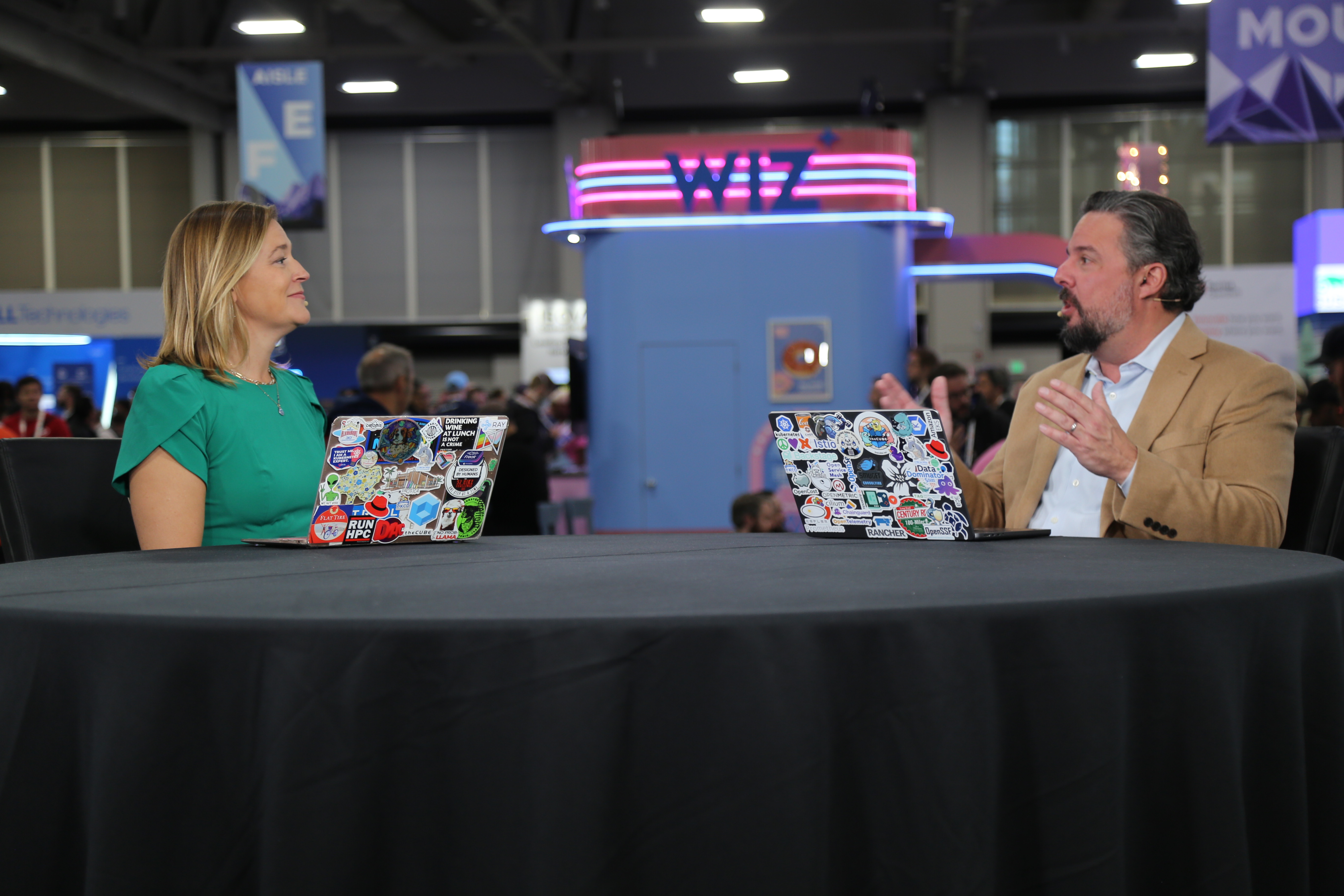 CLOUD
CLOUD
 CLOUD
CLOUD
 CLOUD
CLOUD
Cloud-native infrastructure is rapidly changing as companies seek to streamline, scale and secure their digital environments.
As modern technology increasingly depends on platform engineering and artificial intelligence-driven solutions, a new balance is emerging between traditional DevOps practices and the unique demands of platform engineering. Both approaches are now competing to solve complex challenges in cloud-native and Kubernetes-focused ecosystems, driving the industry toward more integrated, scalable and accessible solutions.
With fresh innovations and collaborative frameworks on the rise, tech leaders are setting ambitious goals for making high-performance, large-scale operations a reality, according to Rob Strechay (pictured, right), managing director and principal analyst at theCUBE Research, and Savannah Peterson (left), principal analyst for devices, developers and edge at theCUBE Research.

TheCUBE Research’s Rob Strechay talks about cloud-native infrastructure during KubeConNA.
“We’ve been talking big conversation about DevOps versus platform engineering, the healthy tension there,” Peterson said. “I do feel there’s this return to platform engineering. I’m not surprised they dedicated a full day to it. Today’s theme being security also not a big surprise. And tomorrow’s theme being the 10-year anniversary of Kubernetes, which we’ve really been celebrating all year long since Paris, which is pretty exciting and across a few other events.”
Strechay and Peterson gave their keynote analysis during day 2 at KubeCon + CloudNativeCon NA, during an exclusive broadcast on theCUBE, SiliconANGLE Media’s livestreaming studio. They discussed the evolving role of platform engineering and cloud-native infrastructure, with a focus on scaling AI-driven and Kubernetes ecosystems, addressing challenges in scalability, accessibility and community inclusivity as the industry strives for sustainable digital transformation. (* Disclosure below.)
Platform engineering took center stage, with speakers highlighting the emerging focus on scaling infrastructure for the future of AI and Kubernetes ecosystems. Discussions around platform engineering versus DevOps illuminated a significant shift. Many argued that while DevOps traditionally supports operational efficiency, platform engineering is carving out its own role in large-scale environments where Kubernetes and AI intersect.
“I think the community is just so vibrant,” Strechay said. “Some of the things that were going on today, yesterday was really around platform engineering as part of the keynote. It was a big platform engineering day. We had Chen [Goldberg] and Peter [Salanki] on after they were off the main stage, and they talked about how they’re using Kubernetes at CoreWeave to scale out their AI infrastructure for being able to build a GPU CSP for the future, train large language models. What they’re doing and how they were actually pulling it all together was really interesting and we got to dig in on that as well.”
These conversations revealed a unique dynamic in the community: a blend of veteran tech professionals and innovative startups collaborating to refine the Kubernetes landscape. Scaling is often the biggest challenge, requiring tools and infrastructure that can handle high-performance demands without compromising security, according to industry leaders.
“I think what really struck me was, and there’s been this really interesting undercurrent from yesterday, was, ‘Oh, Kubernetes is boring now. It’s all solved,’ Strechay said. “Then we had the opposite when we were talking to [Goldberg] and [Salanki], like yeah, it’s still pretty complicated, especially, and I think the word is at scale. And I think when you start to go around … a lot of people talking about how do you get to scale and how do you really productionalize all of this?”
The CNCF, which oversees Kubernetes, also held discussions on project health and maturity, underscoring a commitment to long-term support for new technologies and startups in the cloud-native space. With numerous projects at different stages of development, CNCF representatives emphasized the importance of supporting projects through the graduation process, fostering a mature ecosystem for the future.
“To your point of things we’ve seen move up in maturity, I think that was part of what they were talking about. And today’s keynote was Project Health and things of that nature,” Strechay said. “I think there’s still a lot that has to happen with them bringing together all of these different voices and getting enough healthy projects to graduation. I think that’s still a big theme and a big effort for the CNCF.”
Here’s the complete video interview, part of SiliconANGLE’s and theCUBE Research’s coverage of KubeCon + CloudNativeCon NA:
(* Disclosure: TheCUBE is a paid media partner for the KubeCon + CloudNativeCon NA. Neither Red Hat, the headline sponsor of theCUBE’s event coverage, nor other sponsors have editorial control over content on theCUBE or SiliconANGLE.)
Support our mission to keep content open and free by engaging with theCUBE community. Join theCUBE’s Alumni Trust Network, where technology leaders connect, share intelligence and create opportunities.
Founded by tech visionaries John Furrier and Dave Vellante, SiliconANGLE Media has built a dynamic ecosystem of industry-leading digital media brands that reach 15+ million elite tech professionals. Our new proprietary theCUBE AI Video Cloud is breaking ground in audience interaction, leveraging theCUBEai.com neural network to help technology companies make data-driven decisions and stay at the forefront of industry conversations.